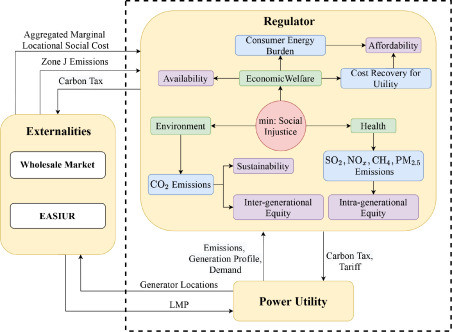Distributed Energy Resources (DERs) can significantly affect the net social benefit in power systems, raising concerns pertaining to distributional justice and equity. Current tariff design approaches suffer from opaque efficiency-equity trade-offs and are also agnostic of the externalities that affect both economic efficiency and equity. Therefore, this paper develops a justice-cognizant tariff design framework that improves the operational savings in the system without sacrificing distributional equity, and encompasses economic welfare, social costs of environmental and public health impacts, and socio-economic and demographic characteristics of electricity consumers. We evaluate four different tariff structures using a Multi-Objective Problem with Equilibrium Constraints. We then compare the operational savings and equity of the proposed framework using the 11-zone New York ISO and 7-bus Manhattan power networks. The results demonstrate that justice-cognizant, and spatially- and temporally-granular tariffs ensure equity and increase the operational savings at a lower energy burden to consumers.

